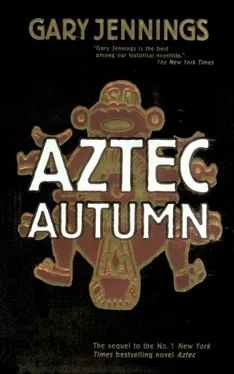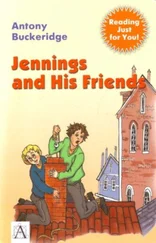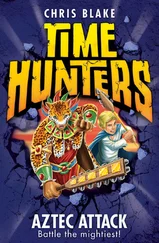Gary Jennings - Aztec Autumn
Здесь есть возможность читать онлайн «Gary Jennings - Aztec Autumn» весь текст электронной книги совершенно бесплатно (целиком полную версию без сокращений). В некоторых случаях можно слушать аудио, скачать через торрент в формате fb2 и присутствует краткое содержание. Жанр: Старинная литература, на английском языке. Описание произведения, (предисловие) а так же отзывы посетителей доступны на портале библиотеки ЛибКат.
- Название:Aztec Autumn
- Автор:
- Жанр:
- Год:неизвестен
- ISBN:нет данных
- Рейтинг книги:4 / 5. Голосов: 1
-
Избранное:Добавить в избранное
- Отзывы:
-
Ваша оценка:
- 80
- 1
- 2
- 3
- 4
- 5
Aztec Autumn: краткое содержание, описание и аннотация
Предлагаем к чтению аннотацию, описание, краткое содержание или предисловие (зависит от того, что написал сам автор книги «Aztec Autumn»). Если вы не нашли необходимую информацию о книге — напишите в комментариях, мы постараемся отыскать её.
Readers familiar with Mexican history will welcome the rich details of this vengeance drama; those new to it will be impressed by Jennings's exhaustive research.
Aztec Autumn — читать онлайн бесплатно полную книгу (весь текст) целиком
Ниже представлен текст книги, разбитый по страницам. Система сохранения места последней прочитанной страницы, позволяет с удобством читать онлайн бесплатно книгу «Aztec Autumn», без необходимости каждый раз заново искать на чём Вы остановились. Поставьте закладку, и сможете в любой момент перейти на страницу, на которой закончили чтение.
Интервал:
Закладка:
"We will start," he said in Náhuatl, "by practicing the open sounds of the Spanish language—ah, ay, ee, oh, oo. They are the same sounds as in these words of your tongue. Listen. Acáli... tene... ixtlil... pochotl... calpúli."
The words he had uttered were recognizable by even the youngest in the class, since they meant "canoe," "mother," "black," "ceiba tree" and "family."
He continued, "You will hear the very same sounds again in these Spanish words. Listen. Acáli... banca. Tene... dente. Ixtlil... piso. Pochotl... polvo. Calpúli... muro."
He led us in repeating those ten words again and again, stressing the sameness of the "open sounds." Only then—not to confuse us—did he demonstrate what the Spanish words stood for.
"Banca," he said, and reached down to pat one of the front-row benches. "Dente," and he pointed to one of his own teeth. "Piso," and he pointed to and stamped his foot on the floor. "Polvo," and he swept his hand across the table, raising a puff of dust. "Muro," and he pointed to the wall behind him.
Then he made us repeat those Spanish words again and again, and join him in pointing to the things meant. Banca, "bench." Dente, "tooth." Piso, "floor." Polvo, "dust." Muro, "wall." Now he returned to our own tongue, saying:
"Very good, class. Now—which of you bright students can tell me five other Náhuatl words that contain those sounds of ah, ay, ee, oh, oo?"
When nobody, including myself, volunteered to do so, Alonso motioned for a small girl on a front bench to stand up. She did, and began timidly, "Acáli... tene..."
"No, no, no," said our teacher, wagging his finger. "Those are the same words I gave you. There are many, many others. Who can speak five of them for us?"
The students, including myself, all sat silent and glanced shyly sideways at each other. So Alonso pointed at me.
"Juan Británico, you are older and I know you have a good store of words in your head. Tell us five of them that contain those various open sounds."
I had already been meditating on this and—I do not know why—a certain five had come into my mind. So now, as mischievously as a schoolboy half my age, I grinned and spoke them:
"Maátitl... ahuilnéma... tipíli... chitóli... tepúli."
A few of the younger children looked blank, but most of the older ones recognized at least some of the words, and gasped with horror or giggled behind their hands, because those were words that any teacher—especially a Christian one teaching in a church school—would not often hear or care to hear.
Glowering at me, Alonso snapped, "Very comical, you impudent babalicón. Go and stand in that corner with your face to the wall. Stay there, and be ashamed of yourself, until class is dismissed."
I did not know what a babalicón was, but I could hazard a guess. So I stood in the corner, feeling that I had been rightfully chastised, and regretting having spoken so to a man who had been kind to me. Anyway, the whole of that day's lesson was given over to repeating, again and again, innocuous words containing those open sounds. I had already mastered the sounds, and memorized those five Spanish words, so I did not miss much by being ostracized and ignored. Also, after the class, Alonso said to me:
"It was a rude and unseemly and infantile thing you did, Juan. And I had to be strict with you as a caution to the others. But I must confide that your wicked caprice did relax the stiffness of those children. Most of them were tense and nervous at this commencement of a new experience. They and I will get along more easily and familiarly from now on. So I forgive your deviltry. This time."
I said, and meant it, that there would not be any more such times. Then Alonso led me along the hall to the room where my next class was assembling. This was where I would be subjected to my first instruction in Christianity, and I was pleased to see that here I was not the oldest pupil. My classmates ranged in age from adolescents to mature adults. There were no children, and only a few females, and among these students there was none of that disturbing diversity of skin color displayed by the youngsters in the other room. However, this was not a class where beginners were being taught the very simplest rudiments of their subject. It had clearly been going on for some time, maybe months, before I joined it. Therefore I was plunged into what, for me, were depths that defied my comprehension.
On that, my first day, the teacher-priest was expounding on the Christian concept of trinity. Padre Diego was bald of hair, not shaven just on the crown of his head, and was pleased when addressed as Tete, our people's fond diminutive of "father." He was very nearly as fluent in Náhuatl as was the notarius Alonso, so I understood everything he said, but not what the words and phrases meant. For example, the word trinity in our tongue is yeyíntetl, and it denotes a group of three, or three things in company, or three entities acting together, or a set of three somethings —such as the three points of a triangle or the three-lobed leaf of certain plants. But Tete Diego kept urging us listeners to adore what is plainly a group of four.
To this day, I have never met a Christian Spaniard who does not wholeheartedly worship a trinity comprising one God, who has no name, and the God's son, who is named Jesucristo, and that son's mother, named María Virgen, and an Espíritu Santo, who, though he has no name, is apparently one of those godling Santos, like San José and San Francisco. However, that makes four to be adored, and how four could constitute a trinity I never could understand.
VII
That day, and each day thereafter—except for the days called Sunday—when I had finished with my two classes at the Colegio, I would report to Alonso de Molina at the Cathedral. We would sit among his heaps of bark-paper books, metl-fiber books, fawnskin books, and discuss the interpretation of this or that page or passage or sometimes just a single pictured symbol.
Of course, the notarius was already well acquainted with such basic matters as the Aztéca's and Mexíca's method of counting numbers, and the differing methods used by other peoples—in the Tzapotéca and Mixtéca languages, for example—and those used by older nations that no longer existed, but had left records of their times—the ancient Maya and Olméca, for example. He also knew that in any book drawn by any scribe of any nation a person depicted with a náhuatl—that is, a tongue—near its head meant the person was speaking. And if the pictured tongue was curly, it meant the person was singing or speaking poetry. And if the pictured tongue was pierced by a thorn, it meant the person was lying. Alonso could recognize the symbols that all our peoples employed to indicate mountains and rivers and the like. He knew many such features of our picture writing. But I was able to correct him, now and then, in some misapprehension.
"No," I might say, "the southernmost inhabitants of The One World—the peoples of Quautemálan—do not call the god Quetzalcóatl by that name. I have never visited those lands but, according to my calmécac teachers, in those southern languages the god has always been known as Gúkumatz."
Or I might say, "No, Cuatl Alonso, you are misnaming these several gods shown here. These are the itzceliúqui, the blind gods. That is why you will find them always pictured, as here, with all-black faces."
That particular remark of mine, I remember, led to my asking Alonso why some of the younger pupils at the Colegio had skin so dark that they were almost black. The notarius enlightened me. There existed certain men and women, he said, called in Spanish Moros or Negros, a pitiably inferior race inhabiting some place called Africa. They were brutish and savage, and could be civilized and domesticated only with great difficulty. But those who could be tamed, the Spanish made into slaves—and a favored few of the Moro men had even been allowed to enlist as Spanish soldiers. Several of those had been among the original troops who had conquered The One World—and those were, like their white comrades, rewarded with grants of tribute here in New Spain, and with slaves of their own, "indio" prisoners of war, the men I had seen with the figure G branded into their faces.
Читать дальшеИнтервал:
Закладка:
Похожие книги на «Aztec Autumn»
Представляем Вашему вниманию похожие книги на «Aztec Autumn» списком для выбора. Мы отобрали схожую по названию и смыслу литературу в надежде предоставить читателям больше вариантов отыскать новые, интересные, ещё непрочитанные произведения.
Обсуждение, отзывы о книге «Aztec Autumn» и просто собственные мнения читателей. Оставьте ваши комментарии, напишите, что Вы думаете о произведении, его смысле или главных героях. Укажите что конкретно понравилось, а что нет, и почему Вы так считаете.











